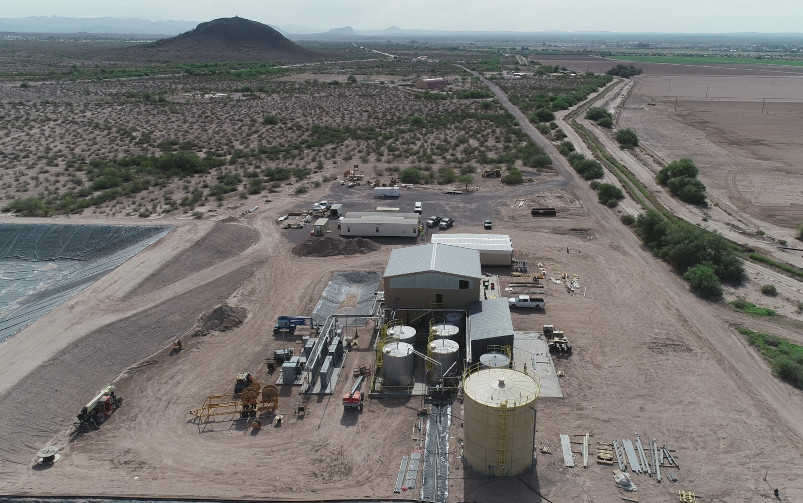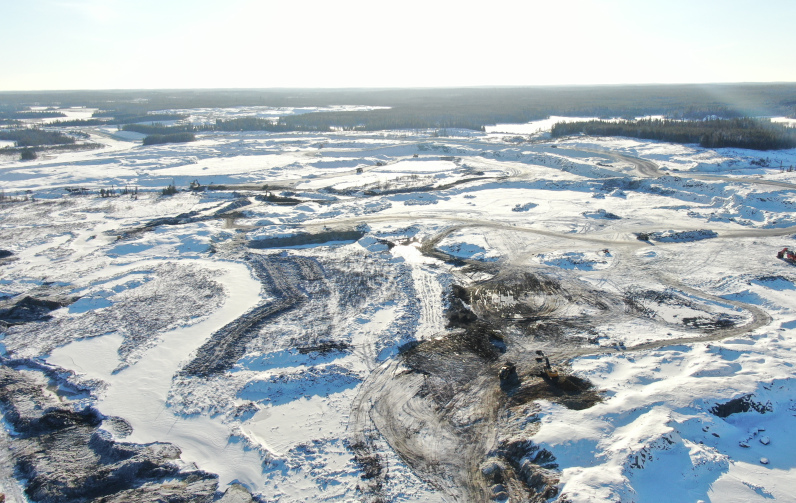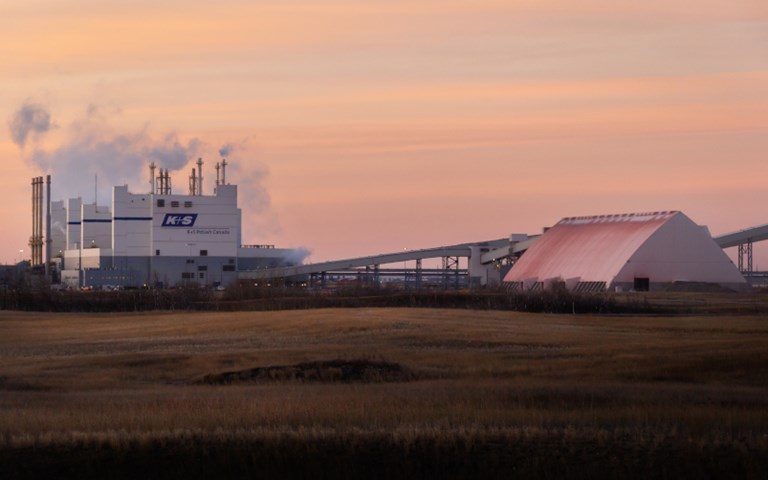Potash producer K + S plans to double production at its Bethune mine in Saskatchewan to four million tonnes annually. Courtesy of K + S.
Welcome back to your weekly mining news recap, where we catch you up on some of the news you may have missed. This week’s headlines include more potash from Saskatchewan, new restrictions jeopardizing the Pebble Mine in Alaska and an untapped talent pool for the industry.
Glencore will pay US$1.5 billion after pleading guilty to bribery and international corruption charges as part of a settlement with U.S., U.K. and Brazilian authorities to resolve long-standing corruption probes, as reported by Bloomberg News. The company admitted to paying more than US$25 million in bribes in Africa for preferential access to oil, and to bribery in Nigeria, Equatorial Guinea and South Sudan. Glencore, which has said it has since made large investments in its ethics and compliance structures, is still subject to unresolved investigations by Swiss and Dutch authorities.
Potash producer K+S announced an expansion plan which involves doubling production at its Bethune mine in Saskatchewan over the next 20 years to a yearly goal of four million tonnes, as reported by the Regina Leader Post. The expansion plan was put forward after the Russian invasion of Ukraine caused important market disruptions, with potash prices soaring over the past months.
Peru’s president Pedro Castillo replaced his mining minister after the government failed to reach a deal between MMG, the operator of the idled Las Bambas copper mine, and Indigenous communities, as reported by Bloomberg News. The agriculture, interior and transport ministers were also replaced at a time when the country has been hit by a series of domestic crises. Castillo has already survived two impeachment attempts since elected last July.
The U.S. District Court for the District of Arizona ruled in favour of Hudbay in the case of its Copper World project, freeing it up from the litigation around the company’s adjacent Rosemont project. The latter remains blocked from construction over environmental impact assessment approval, but the new ruling confirms that Copper World is not constrained by that review. Hudbay expects to deliver a preliminary economic assessment for Copper World in the second quarter of this year, which will include a two-phase mine plan.
New pollution restrictions from the Biden administration could bar Northern Dynasty Minerals’ planned Pebble Mine from disposing of waste water near Alaska’s Bristol Bay, potentially halting the mine’s development, as reported by BNN Bloomberg. The new plan seeks to limit potential harm to the area, which is home to a US$2 billion salmon fishery. The potential restrictions were first introduced by the Obama administration, were pulled back by Trump and are now being reintroduced by Biden.
The bodies of four of the missing eight workers from Trevali’s Perkoa mine in Burkina Faso were recovered this week by the search and rescue teams, as reported by Mining.com. The search for the other four workers continues. Burkina Faso’s prime minister has said that the mine’s managers are banned from leaving the country and investigations into the accident have been launched by both the government and Trevali.
One talent pool remains largely untapped when it comes to industry recruitment: the neurodivergent. Companies who have made conscious efforts to welcome and accommodate neurodivergent staff into their workforce have reported seeing high retention rates and unlocking new skillsets for both staff and managers. Roles in programming, quality control, analytics and IT security can be particularly well-suited for some and having neurodivergent perspectives on corporate boards may also yield increased performance and better stakeholder engagement.
ArcelorMittal is inviting technology start-ups around the world to submit applications for its XCarb Innovation Fund, which aims to invest up to US$100 million in breakthrough technologies to accelerate the steel industry’s decarbonization. Beyond financial support, successful applicants will also receive access to industry expertise, leading research centres and programs, commercialization advice and scale-up support. Submissions are due by June 20.
Teck Resources launched its Zinc Satellite initiative on May 12, set on surfacing additional value from its portfolio of zinc assets by exploring nearby deposits. The project targets five sites in the Americas and Australia which the company claims are among the world’s 25 largest undeveloped zinc deposits. The initiative will build on expertise gained through Teck’s previous Project Satellite, which explored copper deposits to grow the value of those assets.
That’s all for this week. If you’ve got feedback, you can always reach us at editor@cim.org. If you’ve got something to add, why not join the conversation on our Facebook, Twitter, LinkedIn or Instagram pages?




